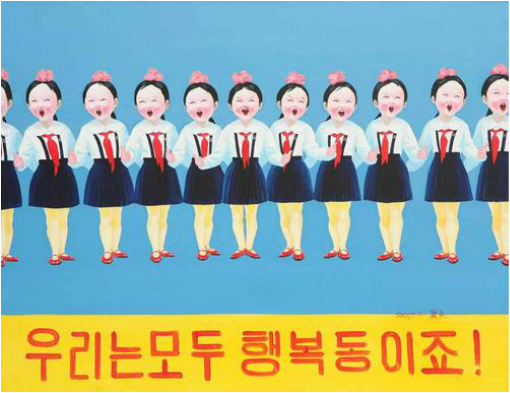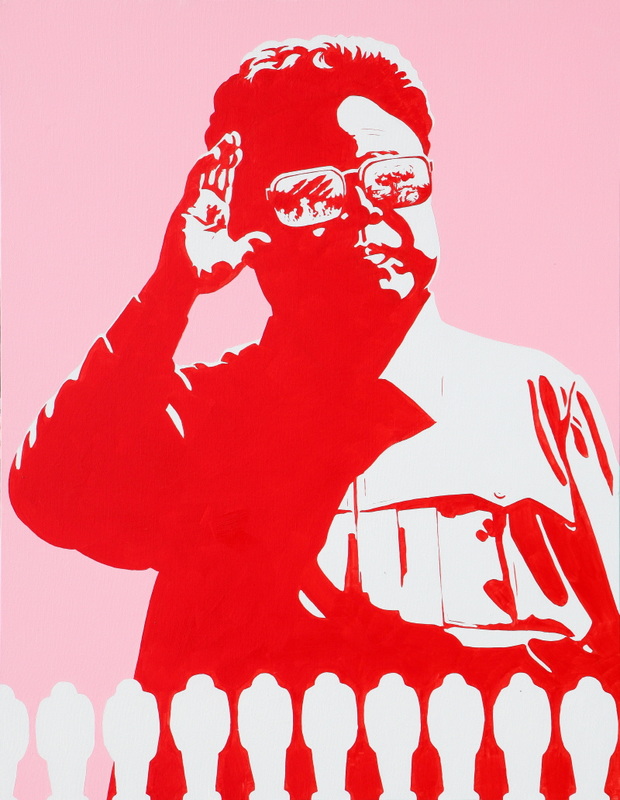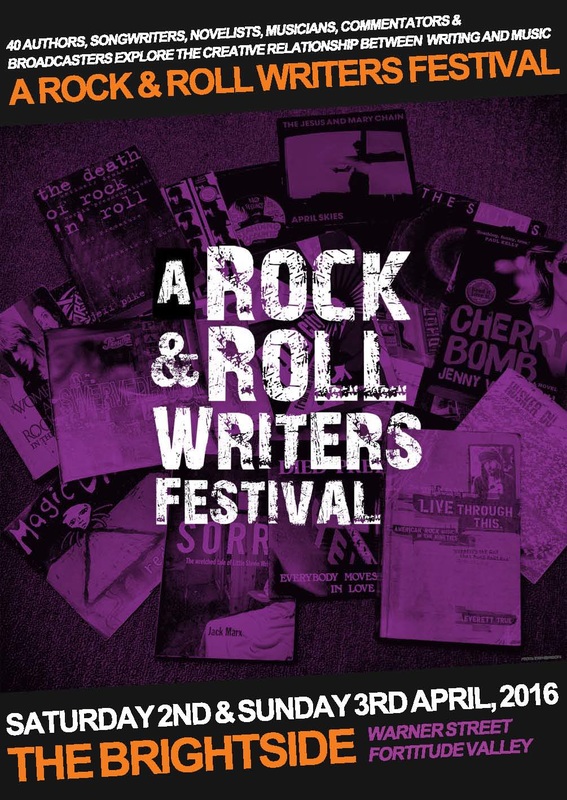| The 2016 GOOD 100 list has now been released in full, and I am absolutely chuffed at being included but at the same time a little perplexed. I’m chuffed to be one of only four Australians on the list – the only (old!) man alongside three super young women (Nakkiah Lui, Genevieve Clay-Smith and Jane Marx) – and I’m extra chuffed to be on any list that includes artists I admire like DJ Spooky and expatriate North Korean painter Sun Mu! I feel like a bit of an interloper though because I am no great political activist – and this is an annual list of people all round the world doing politically good works, the assumption being that ‘politically good’ means left-liberalism, to put it as crudely as is the only way to broadly approach it – but then perhaps on the other hand I should be doubly flattered, because it means my approach is working, getting through… |
| All of which has prompted me to think about my relationship with politics, if they can be separated out from holistic life anyway, and to try and put some articulation to that thinking, which might amount, heaven help us, to something like a bit of a manifesto. Because I do feel somewhat fraught. Certainly, I have little faith in party politics or parliamentary politics, and I sometimes wonder how effective activism can be because it ultimately has to filter through those channels too. I don’t have the right temperament for any of it either way. Direct action, however, is something altogether different, and I am humbled by so many of these Good people who just give so selflessly in this service. My skill-set, however, is better suited I think to other uses, my action not so direct as it is more insidious, say, or slow-release… In my profile in the Good 100 feature I am described as a ‘journalist and musician’, which is funny to start with, because I’m actually neither. As a musician I was always just a pretender (but I am increasingly becoming a producer, sort of), and as a journalist, well, it’s a common misnomer, that I’m a journalist, because while it’s true that journalism is where I started out, it’s not something I’ve done now, in any concerted way, for more than twenty years. Which says a bit in itself: The reason I had to resile from journalism was that the mediocre mainstream media wanted to hammer me into its standard bland box. The higher I climbed the ladder – and I was making some good ‘career’ progress by the late 1980s – the more editors wanted to tell me what to write (about), refusing to allow me to pursue the sort of stories for which I am now here being acknowledged. So I had to go out in the jungle and, well, do-it-yourself… I do cultural history I suppose it’s fair to say, with an emphasis on the underclasses and their or rather our culture and its underexposed or even suppressed realities. But even before that, I am a storyteller. Before anything else, I look for originality, drama, and resonance – the in-built qualities any story needs to get across. I am deeply skeptical of ideologically driven art whether writing or any other form. Too much art these days is assessed and lauded on the basis it’s politically right-on. I’d rather have good art by bad people than bad art by good people: this is a tag I’ve come to use a bit lately. Because doesn’t Bad have just as much right as anyone or anything else? Note that I’m a guy who is highly amused by and identifies to a certain extent with the phrase, Wrong’s what I do best; who, in art, looks for artistic value first, and meaning second. But even if I am being disingenuous, playing for effect, as I do like to do after nearly forty years in showbusiness, let me put it this way: I want politics to inform my aesthetic, not the other way around. Because I think this way produces better art. And yet: Even as I am an avowed opponent of organized religion – and any and all organized religions, or medieval superstition systems designed to keep the lumpen masses in check, not that I’d ever try to impose that will on any Believer – I’m wont to love devotional music, like reggae, Indian music, American gospel. And yet again: Even as I’m an avowed opponent of organized religion, I am no fan of, say, Andres Serrano’s Piss Christ; not because I don’t think people shouldn’t be allowed to offend, but because I think it’s a cheap shot: banal, petulant and ultimately boring. And in art and showbusiness, the first rule, to paraphrase the Ramones – and to which I subscribe – is, Do not be boring. As it happens, I happen to agree with the great Camille Paglia, that all that works designed to shock like Piss Christ are doing is further alienating contemporary art from any audience outside its already-converted urban elites. I look at an artist Sun Mu – what better example, fellow Good guy as reproduced above and below – and think, there’s a better way to get a protest out there, by turning the tools of the oppressor back on themselves… My personal politics – and even just typing those words, I think, who could really give a shit? but I press on because I know it’s the discussion I’m here to have right now – my personal politics could be described, at a pinch, as left-liberal humanist, if dry rather than wet, although the real best technical term, if I’m honest, is surely ‘libertine’. My literary/artistic predisposition is definitely iconoclastic, that is to say, post- or even anti- Western-classical/tradition. And so naturally those currents feed into my work, but with a deathly fear now of the sort of proselytizing I’m embarrassed to admit was a defining feature of so much of my (immature) early work in the punk/post-punk cultural revolution. The difference now is that I know the difference between reportage and polemics, and that I can pull back a bit from subjectivity; and I know that rhetoric is no way to ever advance a narrative. I think I believe that the class struggle, as we used to call it (which is also about race and other such 'othernesses'), is about culture versus economics; people versus money. And so I just look for stories in the culture that have those qualities of originality, drama and resonance that I already mentioned, to the extent that they will allow the story to stand for itself. You go into the field not to try and prove a hypothesis – which is the approach, I believe, that sullies the Academy, by encouraging it to selectively edit the evidence to suit its own Marxist/post-modern ideology – but to find no more or less than what’s there to be found, as is in its realworld context. I don’t want to moralise, and I’d rather not have to analyse (because, again, if nothing else, all that just slows down the narrative) – but if you have enough detail, you don’t have to. The story itself contains all it needs to go out into the wider world and reverberate its effect through the culture. This, I think – I know – is what happened with Buried Country, and now I understand all the more about the Good 100 list, I can appreciate how it was Buried Country that got me on it. I didn’t have to embellish Buried Country, or do any chest-beating or make demands, or rhetorically offer words like 'sorry' that might just as well be empty anyway; the stories were just so strong, with everything you could ask for already in them, I just had to tell them straight… or rather - as all this couldn’t be a more object illustration of the hoariest old aphorism in creative writing classes - let the power of show over tell assert itself. And so that’s why it’s so gratifying to get this Good recognition, because it’s a glimmer that my theory is working, that the stories are getting out there and they’re having an impact. To read an interview that the magazine did with me but which it didn’t run, all the more reason to post it here… |






